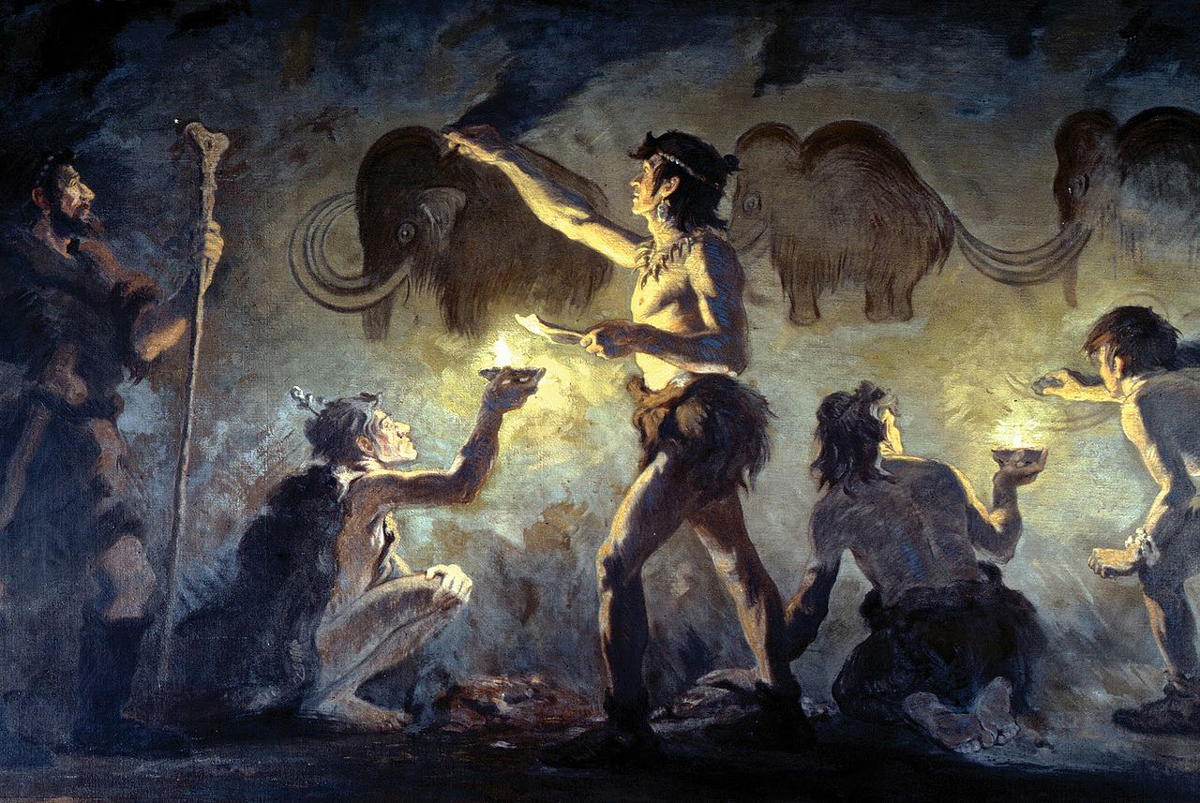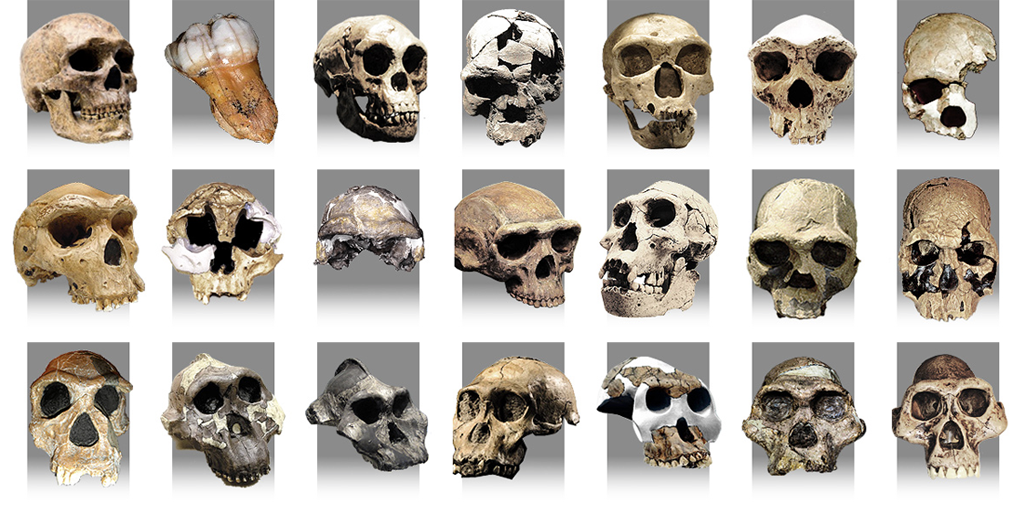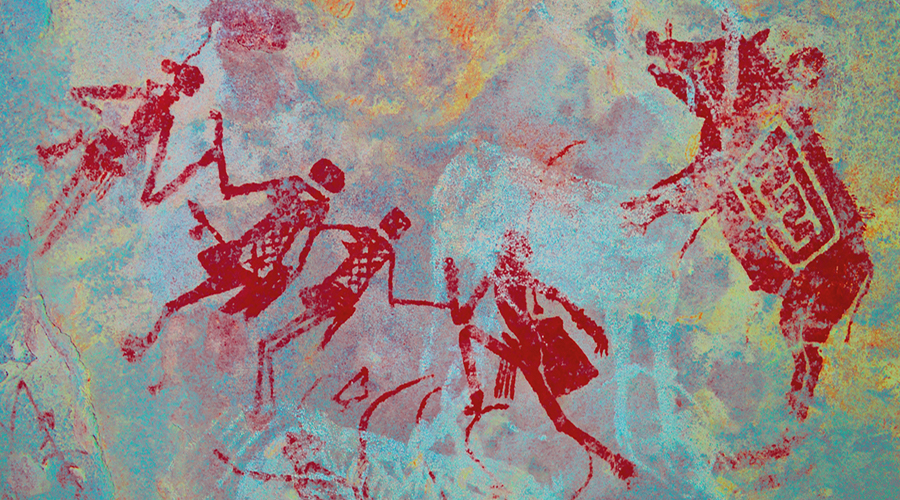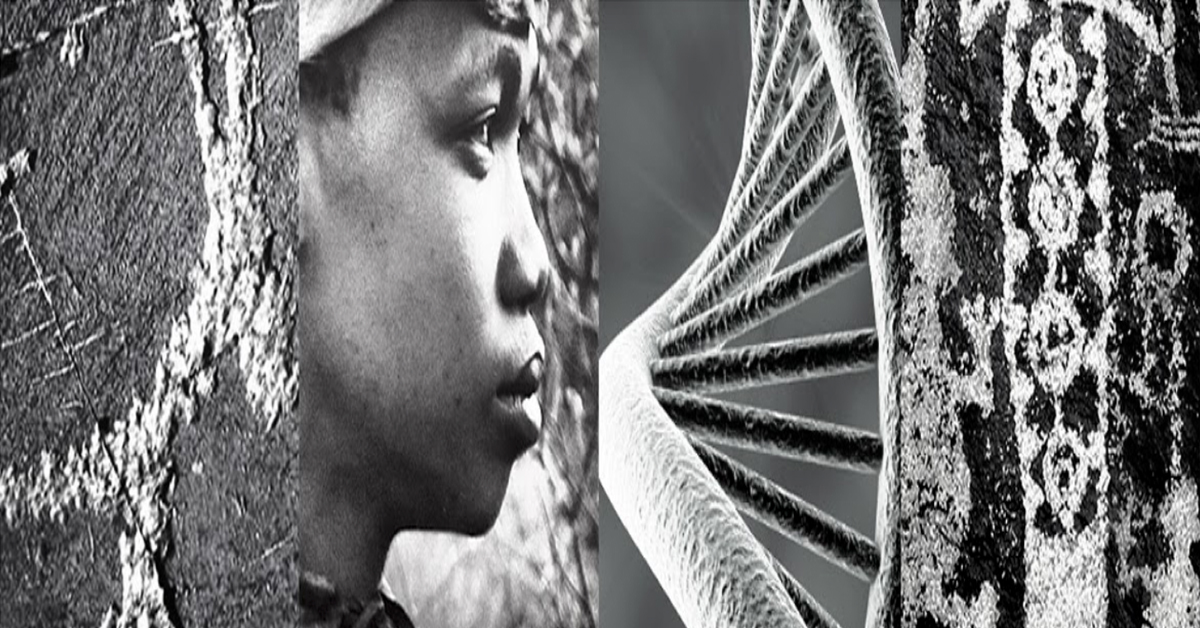


An article in the theguardian by Naomi Stewart - Smoke signals: DNA adaptation helped early humans deal with toxic fumes - reports on research in the US which claims genetic mutation may have made our ancestors less sensitive to smoke's harmful effects and gave them advantage over Neanderthal cousins.

Cro-Magnon artists painting in Font-de-Gaume,1920. Image: Charles R. Knight
The scientists say the altered DNA was found in humans but not Neanderthals, and may have given our early human ancestors an advantage in survival. Researchers at Pennsylvania State University focussed the research on the aryl hydrocarbon receptor gene which plays a role in the breakdown of certain noxious substances.
DNA adaptation helped early humans deal with toxic fumes #origins #palaeoanthropology https://t.co/Wl8XUAOSyX pic.twitter.com/ZTMEoVp55Z
— Bradshaw Foundation (@BradshawFND) August 17, 2016
When organic matter such as meat or wood is burned it releases polycyclic aromatic hydrocarbons (PAHs), which can mutate DNA and cause cancer. The PAHs are absorbed when we eat grilled meats or breathe in smoke. Once inside the body, their presence triggers aryl hydrocarbon receptors into producing enzymes that break them down so they can be flushed out.

But according to the research's author Gary Perdew - the study has been published in Molecular Biology and Evolution - when we breathe in too many toxic substances, just as we would in smoky caves, enzyme production goes into overdrive. The extra enzymes create a slew of toxic by-products that Perdew describes as 'uber-toxicity'.
The mutation Perdew and his team identified appears to slow down enzyme production to a rate that limits the risk of this toxicity. They theorise this may have made humans less sensitive to smoke's harmful effects, allowing them to be around fires more often and offered an evolutionary advantage. Neanderthals, who appear to lack the mutation, would have struggled with more smoke-related respiratory infections, fertility problems, and mortality.
Perdew states that early humans definitely prospered because of this mutation. The lack of the mutation did not cause the extinction of the Neanderthals, but it could have been a contributing factor.
The forerunner of modern humans and Neanderthals, Homo erectus, learned to control fire for warmth and cooking at least 1.9m years ago in Africa. Both picked up the practice from this common ancestor, but with fire came greater exposure to smoke in enclosed caves.
The scientists studied the gene in nine modern humans, including one from 45,000 years ago, three Neanderthals, and one member of the related but mysterious Denisovans in Siberia. The mutation was not present in the Neanderthals or Denisovan, but it was found in all of the modern humans.
Not all agree. David Wright, an archaeologist at Seoul National University and the University of York, was cautious about the interpretation, stating that Neanderthals were the ultimate cave-dwelling fire users, not to mention one of the more successful stories in human evolution.
Visit the ORIGINS section:
http://www.bradshawfoundation.com/origins/index.php
by Bradshaw Foundation
Tuesday 21 March 2023
by Bradshaw Foundation
Tuesday 07 February 2023
by Bradshaw Foundation
Thursday 19 May 2022
by Bradshaw Foundation
Tuesday 19 October 2021
by Bradshaw Foundation
Friday 25 June 2021
by Bradshaw Foundation
Monday 09 November 2020
by Bradshaw Foundation
Tuesday 03 November 2020
by Bradshaw Foundation
Wednesday 28 October 2020
by Bradshaw Foundation
Tuesday 23 June 2020
by Bradshaw Foundation
Thursday 04 June 2020
by Bradshaw Foundation
Thursday 14 May 2020
by Bradshaw Foundation
Tuesday 12 May 2020
by Bradshaw Foundation
Wednesday 19 February 2020
by Bradshaw Foundation
Tuesday 21 January 2020
by Bradshaw Foundation
Monday 20 January 2020
by Bradshaw Foundation
Thursday 28 November 2019
by Bradshaw Foundation
Tuesday 21 March 2023
by Bradshaw Foundation
Tuesday 07 February 2023
by Bradshaw Foundation
Thursday 19 May 2022
by Bradshaw Foundation
Tuesday 19 October 2021
by Bradshaw Foundation
Friday 25 June 2021
by Bradshaw Foundation
Monday 09 November 2020
by Bradshaw Foundation
Tuesday 03 November 2020
by Bradshaw Foundation
Wednesday 28 October 2020
by Bradshaw Foundation
Tuesday 23 June 2020
by Bradshaw Foundation
Thursday 04 June 2020
by Bradshaw Foundation
Thursday 14 May 2020
by Bradshaw Foundation
Tuesday 12 May 2020
by Bradshaw Foundation
Wednesday 19 February 2020
by Bradshaw Foundation
Tuesday 21 January 2020
by Bradshaw Foundation
Monday 20 January 2020
by Bradshaw Foundation
Thursday 28 November 2019
Friend of the Foundation











